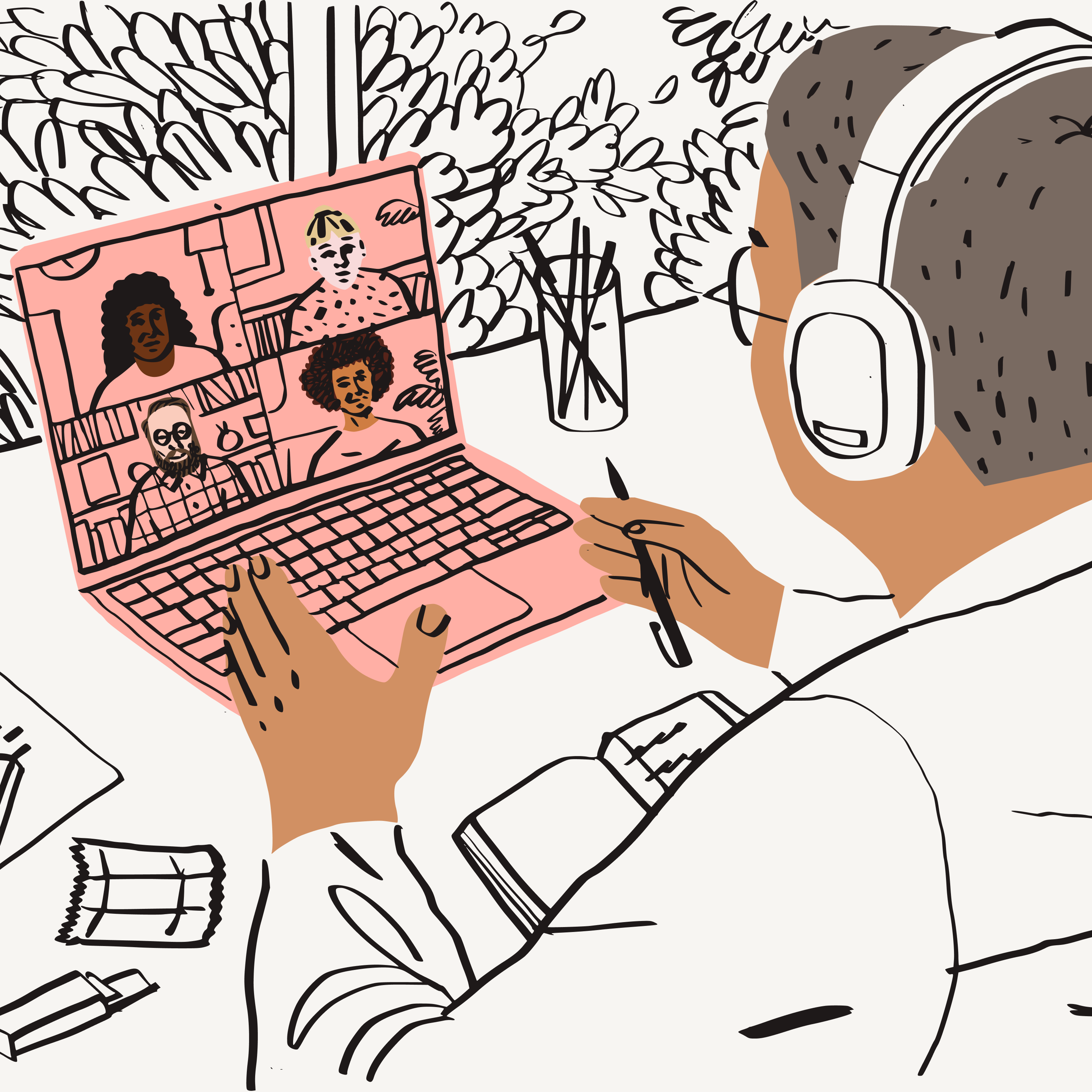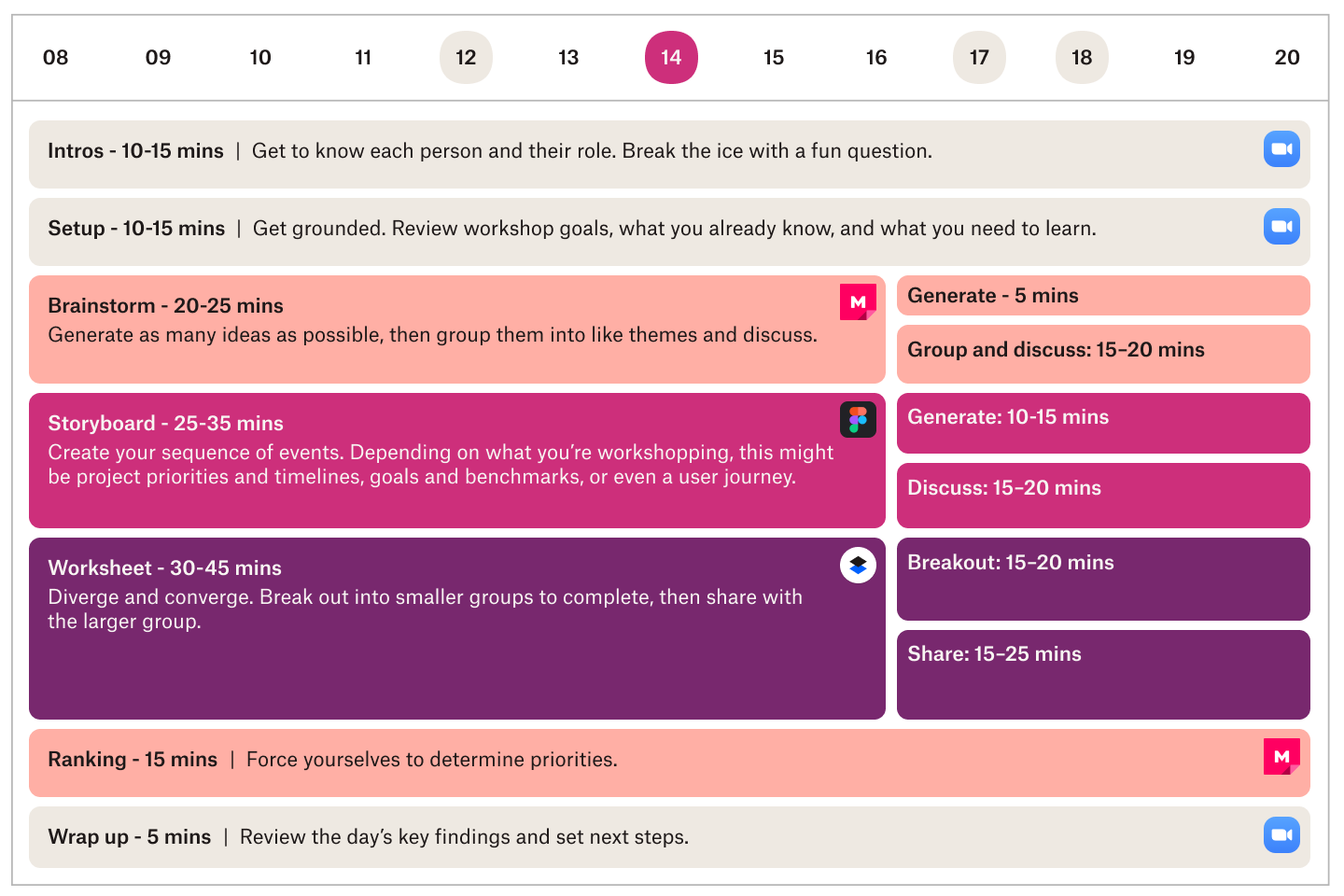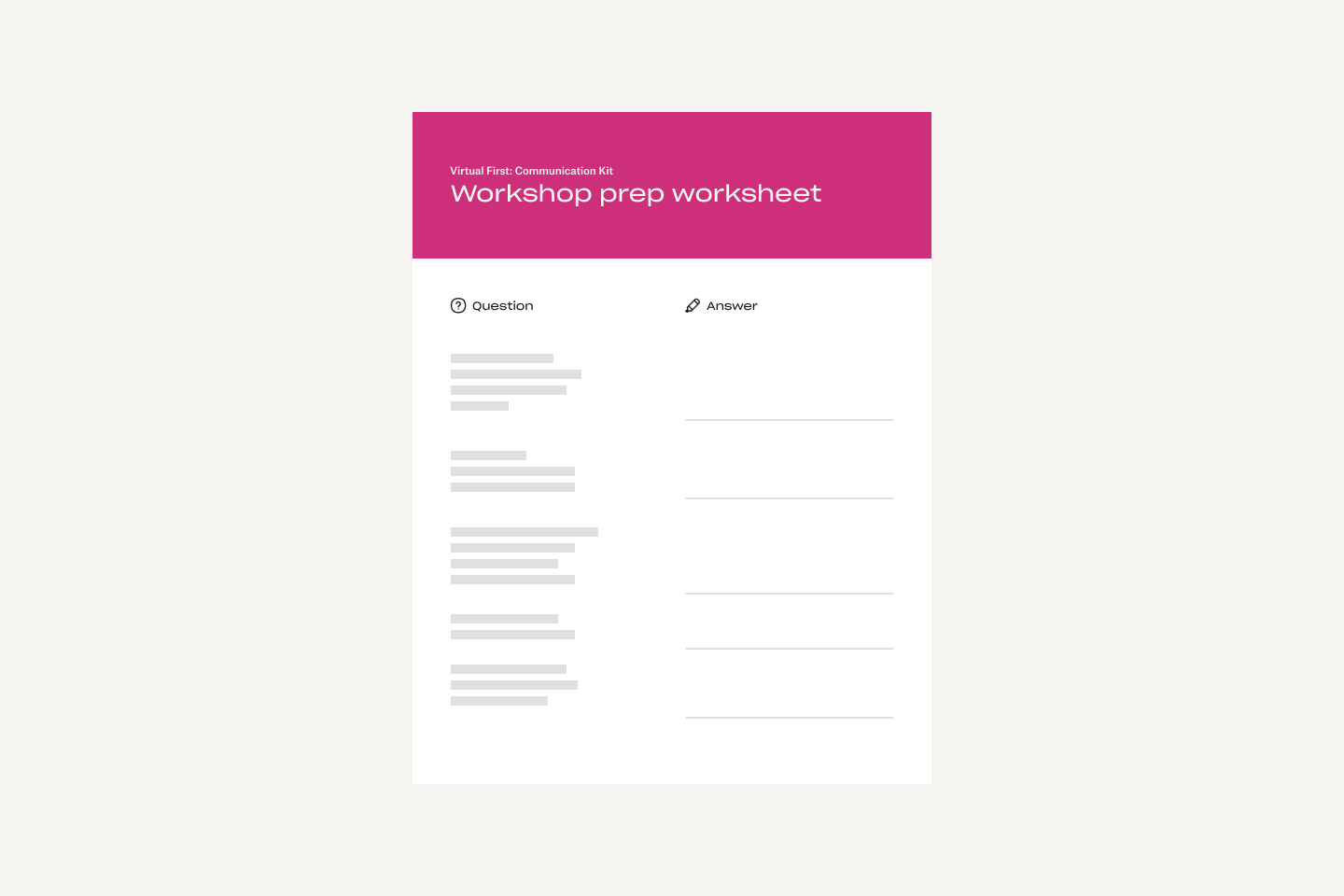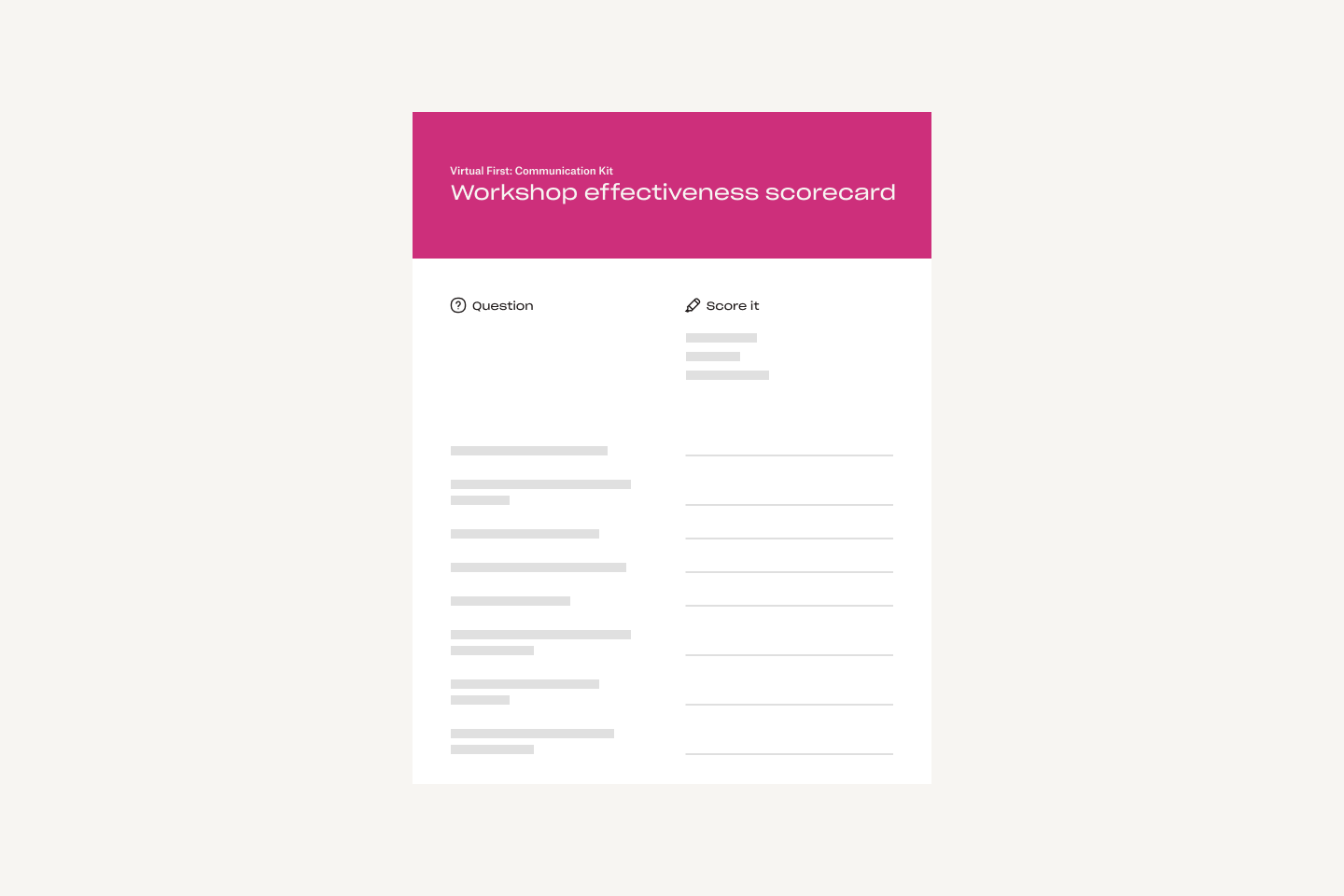Virtual First | Communication Kit
Facilitate a productive workshop
Workshops are a great way to help your team reach goals and fix gaps in process. They can also be a fun way to break free of the meeting cycle and give people a fresh way to collaborate. If your team has been circling around a problem or blocker, a workshop may be your best bet.
Since every workshop is different, it’s all about the prep. Use this exercise to help you plan and run a productive workshop that pushes projects forward.
60 MINS | PERSONAL PRACTICE

Step 2: Prep and plan
Once you’ve outlined your goals and decided who should attend using the worksheet above, it’s time to create the agenda. Consider these factors:
- Time: How much time do you have? Start there and work backward. Give each activity a window of time to complete. Some discussions may end up going over because the group is on a roll—so building in a little wiggle room is always smart.
- Questions: How many questions do you have to answer? If there are more than five, you’re probably trying to do too much. In a virtual setting, it can be hard to keep the energy up. Try to prioritize 3–5 key questions for maximum participation and attention.
- Approach: What’s the best way to answer each question? Review the tools in your kit (examples: Figma, Miro, Mural, Paper) and pair them with activities designed to get the answers you need. Consider your group’s personality types. Extroverts might enjoy open conversation. Introverts often thrive in breakout rooms.
- User-friendliness: How will things work? Make sure to demo each of your planned activities in advance to ensure that things run smoothly—especially if anyone will be using these tools for the first time.

Step 3: Write a compelling invite
Step 4: Lead the charge
You’ve planned, prepped, and demoed—now it’s time to make it happen. Here are some helpful game-day tips:
- Bring the energy! Set an upbeat, cohesive tone and make a meal out of your intros. It’s a great time to build trust and put everyone at ease.
- Set ground rules. Remind the group that all ideas are welcome, participation is key, cameras should be on, and that it’s important to be fully present. Multitasking will just slow things down.
- Use the Parking Lot. Did someone bring up a point that might sidetrack discussion? Is the group swirling around something unproductively? Add it to the workshop Parking Lot and move on.
- Read the room. After a few exercises, you might want to schedule a 5- to 10-minute break to let people step away from their computer or check email if they seem distracted.
- Bring in every voice. It’s your job to make sure everyone chimes in. Call on the quieter people and interrupt the interrupters.
- End on a high note. Summarize key findings and progress, and thank everyone for their time and contributions.
Step 5: Follow up
| Title: Workshop recap and next steps |
Dear workshop crew, Thank you for a fun, productive session. Together, we determined our main audience, outlined key messages, disregarded incorrect assumptions, and aligned on top priorities. Next steps:
The timeline doc has been updated, and we’ll be sharing the consolidated workshop-findings doc by Friday. Thanks again! — Ruth and team |
Step 6: Evaluate
3 easy wins
Build the habit
- Tomorrow: Keep your eyes peeled for projects that seem to be stalled out or churning.
- Next week: Suggest a workshop if you think the team can benefit from having key players work through questions and problems together.
- Quarterly: How’s it going? Evaluate the number and effectiveness of the workshops your team is or isn’t having and make adjustments.

